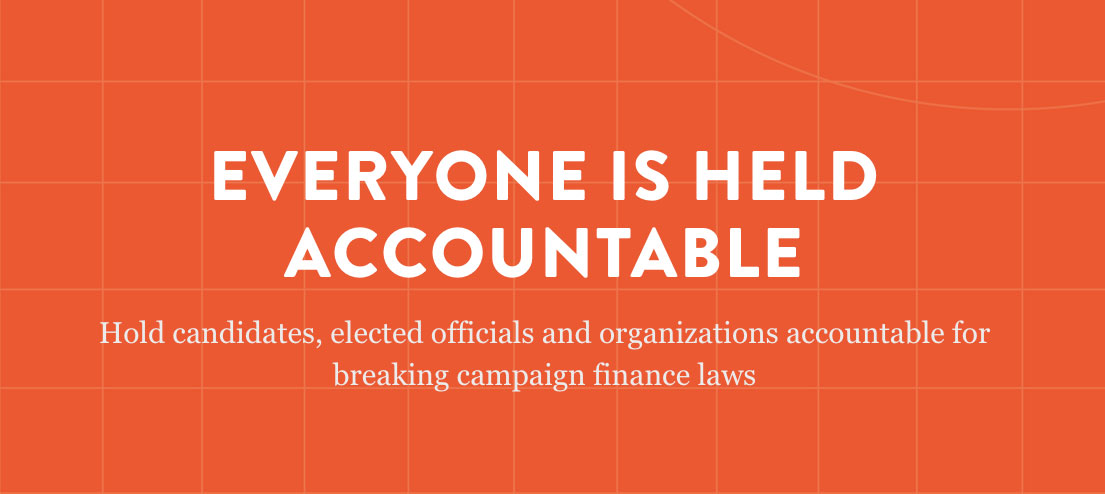This is the fourth installment of our blog series on Blueprints for Democracy, a new collection of solutions policymakers can implement to give everyone a greater say in their democracy. Read the full series here.
Laws are meaningless without effective enforcement mechanisms. This is true of campaign finance measures on the federal and state levels, where enforcement shortcomings have produced an overburdened, hamstrung Federal Election Commission (FEC) and ethics scandals like the one that forced New Mexico Secretary of State Dianna Duran to resign.
Any sustainable campaign finance system must necessarily include comprehensive oversight and meaningful punishment for violations. The good news is that there are a number of effective enforcement agencies around the country that provide models for reform.
New York City
Earlier in the Blueprints for Democracy series, we discussed how New York City’s public financing system empowers citizens to participate in the democratic process. One reason why the program has been so successful is because it is backed by an effective enforcement agency.
The New York City Campaign Finance Board serves as the central hub for city elections, overseeing the public financing process, dispersing a voter guide and publishing campaign contribution and expenditure disclosures online. Additionally, the Board offers trainings for all candidates in C-SMART, an online financial reporting engine. All campaigns are subject to a Board audit after the election, and anyone can submit a complaint to allege campaign legal violations, which the Board will investigate.
California
California’s Fair Political Practices Commission defies the notion that enforcement agencies cannot levy fines high enough to deter would-be violators. In 2013, the state levied a $1 million fine on two dark money groups and collected the $15 million in undisclosed contributions they had made.
The FPPC is continuing to fight for increased accountability in California elections. When nonprofits contribute to state candidates or initiatives through a political action committees, they will be required to disclose their donors, thanks to requirements the commission put in place in September.This rulemaking, intended to staunch the influx of so-called “dark money,” represents a step toward creating a more transparent system.
Federal Election Commission
The Federal Election Commission, the enforcement bureau for federal elections, is in a sorry state. Two commissioners recently petitioned their own agency to try to force it to do its job. In 2013, the Center for Public Integrity study found that “[a]nalysts charged with scouring disclosure reports to ensure candidates and political committees are complying with laws [had] a nearly quarter-million-page backlog.”
The problem is that the FEC is gridlock-prone by design, with three Republicans and three Democrats serving as commissioners at all times. Revitalizing and empowering the commission would likely require higher funding levels, leeway to assess stricter punitive fines on law-breakers—as has been done in California—and a definitively nonpartisan structure. A campaign finance enforcement agency has to be able to act before an election happens to be truly effective.
A strong campaign finance system is nothing without an enforcement structure that works. It is critical that cities and states around the country empower their election watchdogs to promptly levy penalties that will actually dissuade law-breaking.
In our next installment in the Blueprints for Democracy series, we’ll move to jurisprudence, and look at the vital role the courts play in the campaign finance apparatus.


 (Everyone Is Held Accountable)
(Everyone Is Held Accountable)
